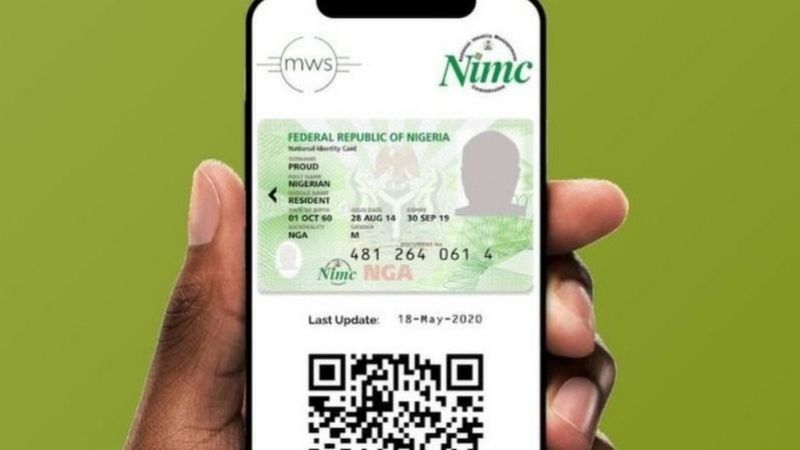RIO DE JANEIRO, BRAZIL – More than a third of all cell phones in Nigeria were unable to make calls as of April. Their owners had not had their SIM card linked to a “national identification number. In Africa, the pressure for digital identity is massively stepped up.
In April, more than a third of active SIM cards in Nigeria were blocked. This is because 73 million of the nearly 200 million are not registered in the national digital identity database. Due to “security reasons,” you can now no longer make calls with them, which determines new registration laws in other African countries.

DIGITAL ID IN NIGERIA
In Africa, the digitalization of individual identity has been going on for some time. The “National Identity Number” (NIN) has already existed in Nigeria for almost ten years, “Reuters” reported a few days ago. Biometric data is stored on it, and the NIN is needed to vote, open a bank account, get health insurance, apply for a driver’s license or settle taxes.
In 2020, the telecommunications authorities announced that they would also link active cell phones. Initially, the deadline was repeatedly postponed by three months, until March 31 of this year. A few days later, calls could no longer be made from unregistered SIM cards.
The NIN is an 11-digit identification number, which, according to the government, is the basis for a comprehensive digital ID system. The “ID card system” would help fight militant groups in the country and other crimes, they say.
“There are no reasonable explanations for why we need to link the NIN to our SIM card,” Nneka Orji, a journalist in southeastern Nigeria who has not registered her SIM card, told Reuters. “For this reason, I am not willing to do that.” She now uses WhatsApp to make phone calls.
RESISTANCE AMONG THE PEOPLE
Millions of Nigerians no longer have a registered cell phones. Whether because of privacy concerns or the difficulty of obtaining a NIN. But there is a lot of resistance to the government’s plans.
The Nigerian government argues its advance on the basis of security policy. For the population, this is a weak argument. They are fighting back. For example, a Nigerian Twitter user wrote in May 2021: “You are at the mercy of whoever has your BVN, NIN and IMEI – your finances, your communication channels, your contacts, colleagues and family, your location, I mean the complete organogram of your existence.”
In a survey at the time, 90% of people said they did not support phone capture.
West Africa is a playground for GAVI, the Vaccine Alliance, and the Gates Foundation. ID 2020, in which GAVI and Microsoft are collaborating, also sees itself as primarily needed in the global South.
In June 2020, GAVI reported that Mastercard (a partner) would adapt its so-called “Wellness Passport Program” in response to Covid. They brought in the “Trust Stamp” system to the program, which can store biometric data without identifying the person with an ID card beforehand.
The new passport program was to be coupled with a Covid vaccination program and rolled out in West Africa.
VACCINE-BASED
This compromises the digital identity notion of Gates’ work: medical data and personal documents should be stored in a “cloud” that can be accessed anywhere in the world.
“Cloud” is a misleading term here. The backup happens not somewhere in the air in a diffuse cloud but in huge server farms underground. Google, Amazon, and Microsoft own the largest server farms.
Last year, reports also circulated about a leaked intelligence report, from which it is said that Gates wanted to finance a “forced vaccination program” for US$10 million in Nigeria.
However, something similar to what is happening in Nigeria is also happening in other countries in Africa. In March, Zambia had announced it had deactivated two million SIM cards to prevent fraud. Kenya had set a deadline of April 15 to halt unregistered SIM cards.
Ghana also urged its citizens to link their SIM cards to the “Ghana Card,” or they would soon be lost. But Europe should not be forgotten either. In Austria, “ID Austria” is just coming; the main change in this form of identification is that it also registers one’s smartphone. Unregistered SIM cards have not existed in Austria for some time anyway.
In contrast to these countries, however, Nigeria is a vast country. With about 220 million inhabitants, it is the most populous country in Africa. Lagos is the second-largest city in Africa after Kinshasa and the hub of West Africa.

